Pullman resident Tom Shepherd has in his possession a remarkable artifact from a bygone era: a bronze plaque created by the Pullman SFBI (Societa Filarmonica Bella Italia) to honor members and their sons who had served in World War II.
Given the significance of this artifact and its military theme, Mr. Shepherd has made arrangements to donate the plaque to the Italian American Veterans Museum at Casa Italia in Stone Park.
The plaque will be bestowed upon the museum at a special ceremony at the Oct. 30 Spaghetti-Os meeting at Carlo Lorenzetti’s, 560 W. 14th Place, Chicago Heights. We’re hoping to involve as many descendants as possible of the men listed on the plaque in the ceremony. Their names are listed below. If you or anyone you know is related to one of these brave men, please let them know about the Oct. 30 ceremony.
The meeting will begin at 5 p.m. with a family-style buffet. The cost for the dinner is $12 per person. If you plan on attending, please contact me at cjfranoi@yahoo.com or 773-701-6756.
Donations to assist the museum in preserving, displaying and maintaining this precious artifact will be accepted at the ceremony. Donations can also be sent directly to the Italian American Veterans Museum, 3800 Division St., Stone Park. IL 60165. All donations are fully tax deductible.
Please help me spread the word about this very special event. Information will also be posted on the Facebook pages: CJ Martello — Pullman Virtual Phone Tree-Neighbors Caring, Neighbors Sharing — Real Bumtown Memories — Roseland History.
Here are the names of the veterans memorialized on the plaque, in alphabetical order: Guido Alliod, Davis Anastassi, Alessio Anastassi, John Antoniono, John Avignone, Mario Avignone, John Basano, Primo Battian, Alvin Baudino, Merlin Baudino, Aldo Bechaz, John Bercera, Americo Bernardi, Italo Bernardi, Antonio Bersano, Michael Biavia, Leion Biolchini, Robert Biolchini, Louis Bomben, Emil Bonardi, Joseph Borello, Maurice Borello, Arthur Caretti, Edward Caretti, Antoni Caretto, James Caserio, Dominick Castelnuovo, Serio Cavalieri, Charles Cavallo, Dominick Cavallo, Peter Cecilio, Robert Chadel, Lino Chasseur, Anthony Christopher, Lawrence Clarino, Lewis Coda, Battista Cordera, Frank Cozzi, Louis Curoso, Angelo D’Adam, Joseph Dacorte, Leo Dalle Molle, Frank De Bernardi, Bernard De Gasso, Robert De Gasso, David De Marco, Mario Degani, Michael Degani, Raymond Degani, Vincent Degani, Joseph Enrico, John Enrietti, George Favre, Aldo Forte, John Fortina, Angelo Furno, Roy Gaspari, Adolph Gedda, Alfred Gedda, Joseph Ghidotti, Arthur Ghiotto, Norris Ghiotto, Ralph Ghiotto, Marion Gianoglio, Bernard Girote, Richard Grosso, Vincent Guastalli, Al Iandlino, Jack Ippolito, Carmen Lofrano, Ernest Luri, Sam Luri, Barney Macari, Arthur MacDonald, Anthony Maladra, Fedele Mamprisio, Albert Manescalchi, Frank Marino, Robert Marta, Humert Martin, Arnold Martinotti, Henry Martinotti, Joseph Marzari, Steven Massari, John Meinardi, Angelo Mentesti, Floyd Micheluzzi, Lawrence Minelli, Louis Minelli, William Minelli, Frank Monti, Al Montino, Joseph Mottino, Robert Munari, James Mussatto, Carmen Nespeca, Packy Nespeca, John Oglietti, Bill Ossello, James Pafei, Peter Pafei, Peter Paglia, Peter Palango, Angelo Paolino, Jerry Perelli, Bruno Quagliano, Clemente Reginato, Aldo Riccardini, Joseph Richetta, John Roi, Peter Roi, Peter Santacaterina, Andrew Serra, Joseph Stella, Albert Strazzabosco, Gino Strazzabosco, Robert Tabacchi, Gino Tavernaro, Martin Terra, Chester Tomaselli, Joseph Valfre, James Vallortigara, Edward Verna and Michael Vezzetti.
Pullman gave birth to Labor Day!
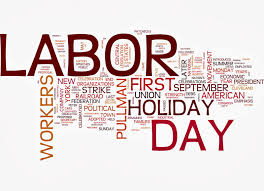 The Pullman Strike of 1894 became a national strike after the Pullman employees were joined by American Railway Union. As a national strike, railway workers throughout the country joined in a work stoppage that affected the transport of goods throughout the country. There were considerable acts of violence committed by the strikers in many places, but not in the rown of Pullman.
The Pullman Strike of 1894 became a national strike after the Pullman employees were joined by American Railway Union. As a national strike, railway workers throughout the country joined in a work stoppage that affected the transport of goods throughout the country. There were considerable acts of violence committed by the strikers in many places, but not in the rown of Pullman.
In the large railroad yards of Hegewisch and Blue Island, there was millions of dollars of property damage. This was triggered by the domineering attitudes of the General Managers Association who organized actions against the strikers, threatening them. The violence led to $80 million in damages throughout the country’s rail yards.
All of this violence led to pressure being put on President Grover Cleveland by the General Managers Association to call out the federal troops, which he did to ensure that trains that included Pullman cars and mail cars would not be interfered with. Although little or no violence was experienced in Pullman, troops were stationed and tented on the grounds of the Arcade Building and the Hotel Florence, which ended the strike.
The 1894 Pullman Strike was just one example of the American work force’s attitude. They were restless and tired of being put upon by the owners and management of the companies. The times they were a changin’.
The Pullman Strike made the nation’s business leaders take note that the working class now demanded recognition and fair treatment. It also ensured that a bill that had been sitting on the president’s desk for 11 years would be signed.
As a direct result of the unrest exhibited by the 1894 Pullman Strike, President Grover Cleveland finally signed the Executive Order that designated Labor Day a federal holiday. Legislation for the holiday was pushed through Congress six days after the strike ended, showing to the world that the actions of the workers of Pullman were meaningful.
This year’s Pullman Labor Day celebration takes place during the Illinois Bicentennial. The event will be held from 2 to 5 pm. on Sept. 3 outside the Pullman State Historic Site’s Hotel Florence. The “Protocol Combo” from Navy Band Great Lakes will perform. There will be factory ground tours and food will be available for purchase. There will also be an opportunity to learn more about the strike and the railroads in the development of Illinois. There may also be the possibility to see recently completed restoration work on the Hotel Florence’s first floor. Please join us and representatives of the national labor ovement for this entertaining and informative celebration.
Contact me at 11403 S. St. Lawrence Ave., Chicago, Ill. 60628; 773-701-6756; or cjfranoi@yahoo.com; or visit Roseland Roundtable on Facebook.
 Fra Noi Embrace Your Inner Italian
Fra Noi Embrace Your Inner Italian


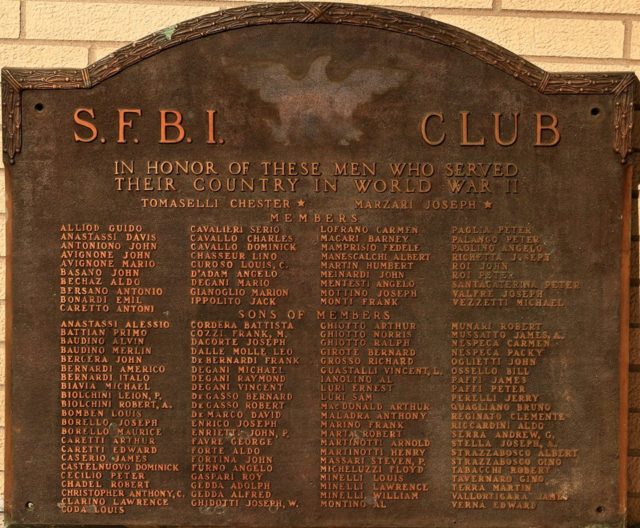
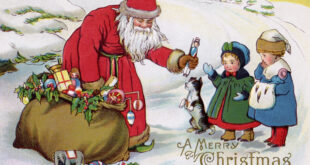
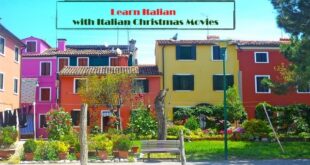

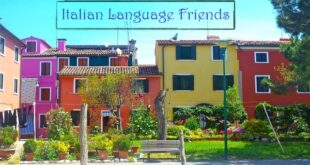
great presentation. Jack
liked this article. Jack